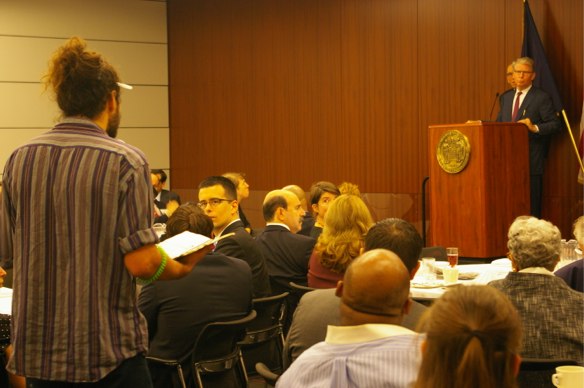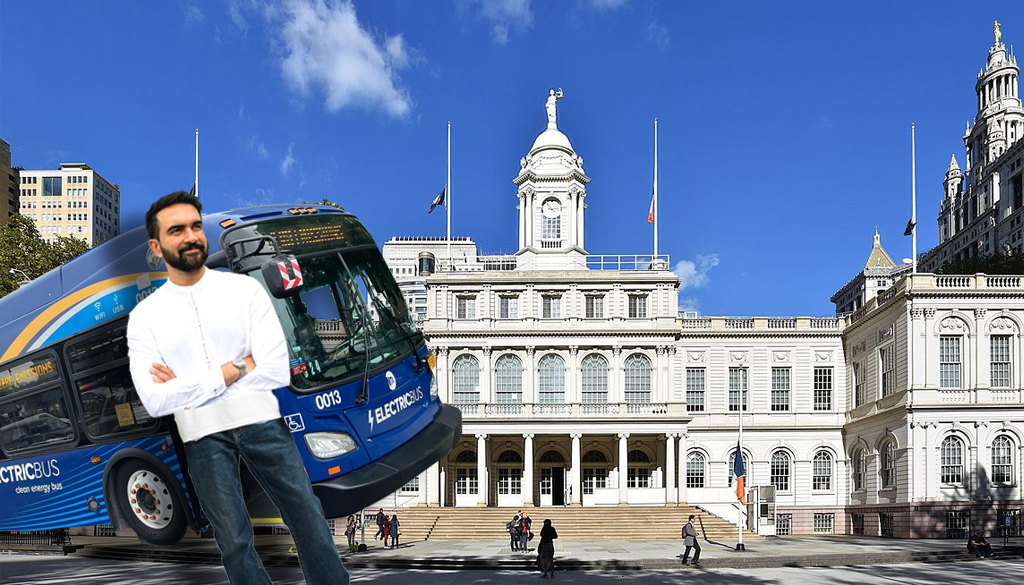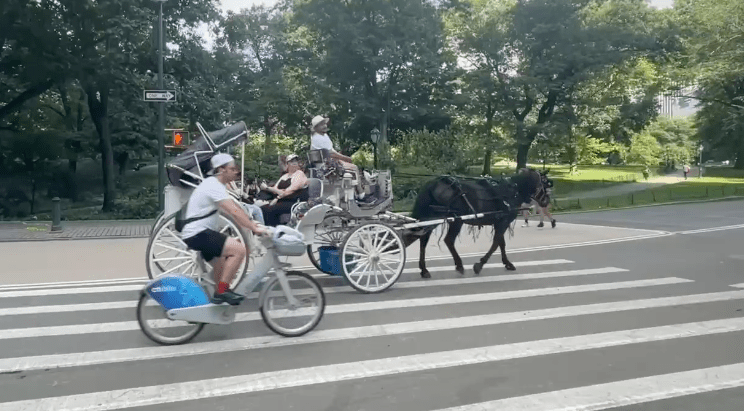Safe streets advocates got a rare chance today to ask questions directly of a sitting city district attorney, even if they didn't get the answers they were looking for.
Speaking to a packed room at New York Law School in Tribeca this morning, Cy Vance highlighted successes by Manhattan prosecutors in fighting local and international crime, from street gangs and domestic violence to terrorist money laundering. During the Q&A session, Vance fielded two questions related to vehicular crimes.
When running for office in 2009, Vance said that as district attorney he would consider vehicle black box data "critical" to crash investigations, and that he would issue subpoenas to acquire it. Street safety stalwart Charles Komanoff asked Vance if his office has issued, or plans to issue, subpoenas for data from the vehicles involved in the September 22 crash that killed pedestrian Rubin Baum, and injured his wife Denise Baum, on the Upper East Side.
Vance replied that he did not know whether subpoenas were issued in the Baum case, and said that procuring black box data is "complicated." He cited four successful prosecutions for traffic fatalities -- two in which the driver was intoxicated, one crash that resulted from a police chase, and one manslaughter case that did not involve alcohol or drugs -- along with an increase in the number of hit-and-run cases brought under his watch. Vance said his office does the best it can with difficult cases.
"This is not an easy area," Vance said. "Not every accident is a crime." However, he said, his office has been and will continued to be focused on traffic crime. "There are far too many vehicular deaths in this city," he said.
As a candidate, Vance spoke in no uncertain terms of his intent to challenge the so-called "rule of two." From his campaign web site:
There is no reason why two traffic violations are necessary in order to support a conviction of criminally negligent homicide. I view the “Rule of Two” as the result of case law which should be modified to reflect the reality that one vehicular crime is fully capable of killing. Although in recent years this notion has been applied by the courts in a less strict manner -- it is indisputable that it does not take two violations to kill someone. Many violations -- speeding, running a red light, or failing to stop at a stop sign are more than dangerous enough to take a life.
Streetsblog asked Vance if his office has in fact prosecuted homicide cases that involved only one traffic violation, and whether those prosecutions resulted in convictions. If no such cases have been brought, we asked Vance when he would challenge the "rule of two." Vance said he could not answer the question "precisely," and that his office would follow up with us. This afternoon, we received the following statement:
In every case that comes into this office -- be it an arrest for pick-pocketing or a homicide -- prosecutors look at the totality of the circumstances surrounding the incident. As in all cases, we are bound by the parameters of the law -- the evidence available dictates the charges available to us. There is no mandate that there be two or more factors when making a charging decision, particularly as it pertains to charging criminally negligent homicide. However, criminally negligent homicide isn’t the sole charge available to prosecutors in vehicular incidents resulting in death. For example, Dyson Williams was sentenced to 17 years to life in prison after being found guilty of Murder in the Second Degree, among other charges, for striking and killing one woman and injuring four others. Keston Brown was sentenced to 15 years in prison after being found guilty by a jury of Manslaughter in the Second Degree, among other charges, for driving a van onto a sidewalk, striking and killing one woman and seriously injuring another. David McKie and Jessica Altruz were also convicted of Manslaughter in the Second Degree and sentenced to state prison terms.
The cases listed in the statement, it should be noted, are the same ones cited by Vance this morning in response to Komanoff.
While Vance said prosecutors work with NYPD to investigate traffic crashes, in response to otherwise unrelated audience questions about police misconduct, he said it is not the district attorney's job to "direct" other governmental departments. It's an interesting aside, at least, given NYPD's unapologetic neglect of vehicular crime investigations, and considering another Vance campaign pledge:
Death by vehicle requires stringent, serious, and methodical on-site investigations by the NYPD and prosecutors. Assistant District Attorneys must work cooperatively with the NYPD and both must be fully trained in forensic accident reconstruction. Preparing our police and prosecutors to handle such cases can vastly improve investigations of traffic deaths. My ultimate goal remains disciplined and sophisticated case-by-case assessments of vehicular crimes. Prosecutors must be trained to take the totality of the circumstances into consideration; this strategy will ensure that the people of New York City are fairly, properly, and justly served.
Following today's session, Komanoff offered this assessment: "The answers attested to a passivity about traffic crimes. Yes to DUI, hit-and-run -- but only the hit-and-run charge -- the occasional striking a police officer and, perhaps, extraordinary cases such as Carmen Huertas, which resulted in 'Leandra's Law.' No to everything else -- speeding, lack of due care, aggressive passing, texting, red-light running, aggressive and illegal turning, and general recklessness -- that constitute the large majority of intimidating, injuring and lethal driving."
"He said to me, 'If your premise is that we don't take vehicular crimes seriously, you're wrong.' I'd say that after three years of little or no action, victims, survivors and advocates are tired of waiting for more than his sprinkling of counter-examples."
Next week, Vance's office will host a vehicular crimes training session featuring traffic law experts from the New York City metro region and beyond. We'll have more in a later post.






